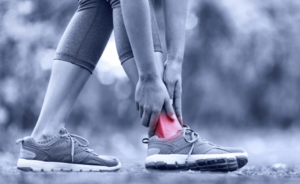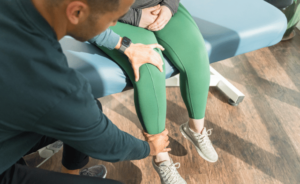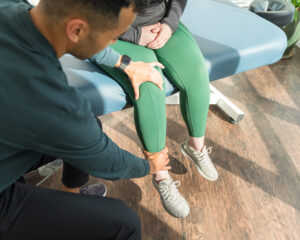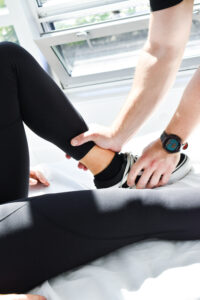Introduction

When you start a new exercise routine, it’s normal to feel some pain and soreness. This is simply your body’s way of adapting to the increased demands that you are placing on it. Initially, you may find that certain muscles feel tight or strained, while your joints may begin to ache. Additionally, you may notice a general feeling of fatigue and discomfort.
These sensations should not be cause for alarm; they are actually a sign that your body is responding positively to the physical demands you are placing on it. With time and consistent effort, your muscles will gradually become stronger, more flexible, and better able to withstand impact. So if you are experiencing some degree of soreness in your first few days or weeks of working out, just know that this is totally normal–and keep pushing forward!
But what sort of pain should we watch out for when we’re exercising?

There are a number of different types of pain that can affect individuals in different ways. At the most basic level, we typically categorize pain into two main categories: acute and chronic pain. Acute pain refers to short-term or sudden episodes of intense pain that often resolve quickly, such as when you injure yourself or cut your finger on a knife. Chronic pain, on the other hand, is longer lasting and may persist for months or even years.
When it comes to exercise though, there is a wide range of pain types you can feel. For some, even small exertion can lead to a lot of discomfort, while others feel little or no pain at all.
It is important to remember that some amount of pain is normal when you are working your body hard. This type of pain is often associated with improvements in muscle strength and endurance, as well as increased cardiovascular fitness. This can be especially true for people who are just starting out on an exercise program, since their bodies may not yet be used to such strenuous activity.
Other types of pain can be cause for concern, such as sharp, stabbing sensations in the lower back or chest pain that seems to radiate out from your rib cage. Other types of pain that are not normal and may indicate the presence of an underlying condition or injury are joint or bone pain. If your pain remains long after you work out, is limiting your capacity to do things, or preventing you from sleeping, it’s time to see a professional.

Ultimately, whether a certain type of pain is normal during exercise requires careful consideration of the underlying cause. Factors like intensity, frequency, and duration all need to be taken into account when making a determination about whether or not exercise-induced pain is characterized by normal physiologic stress response or something more serious. But in general, if you are experiencing any type of unusual pain during your workouts, it is always best to consult with a healthcare professional – like a physiotherapist – to rule out any underlying conditions that might require treatment.
When it comes to dealing with pain when you exercise, there are a few key things to keep in mind. Firstly, it is important to listen to your body and pay attention to any warning signs or negative changes in your physical condition. If you feel sharp or intense pain or notice that you have trouble doing certain types of movements, it may be best to slow down or stop your workout altogether. In addition, it is also crucial to warm up and cool down properly before and after exercise sessions. This can help prevent injury by loosening up the muscles and joints and allowing your body time to transition from rest into activity. Overall, by staying aware of what your body is telling you and taking care when you exercise, you can more effectively manage any discomfort or pain that arises. When pain arises that isn’t normal, it’s time to see a physiotherapist, who can determine what is causing you pain and treat it.






